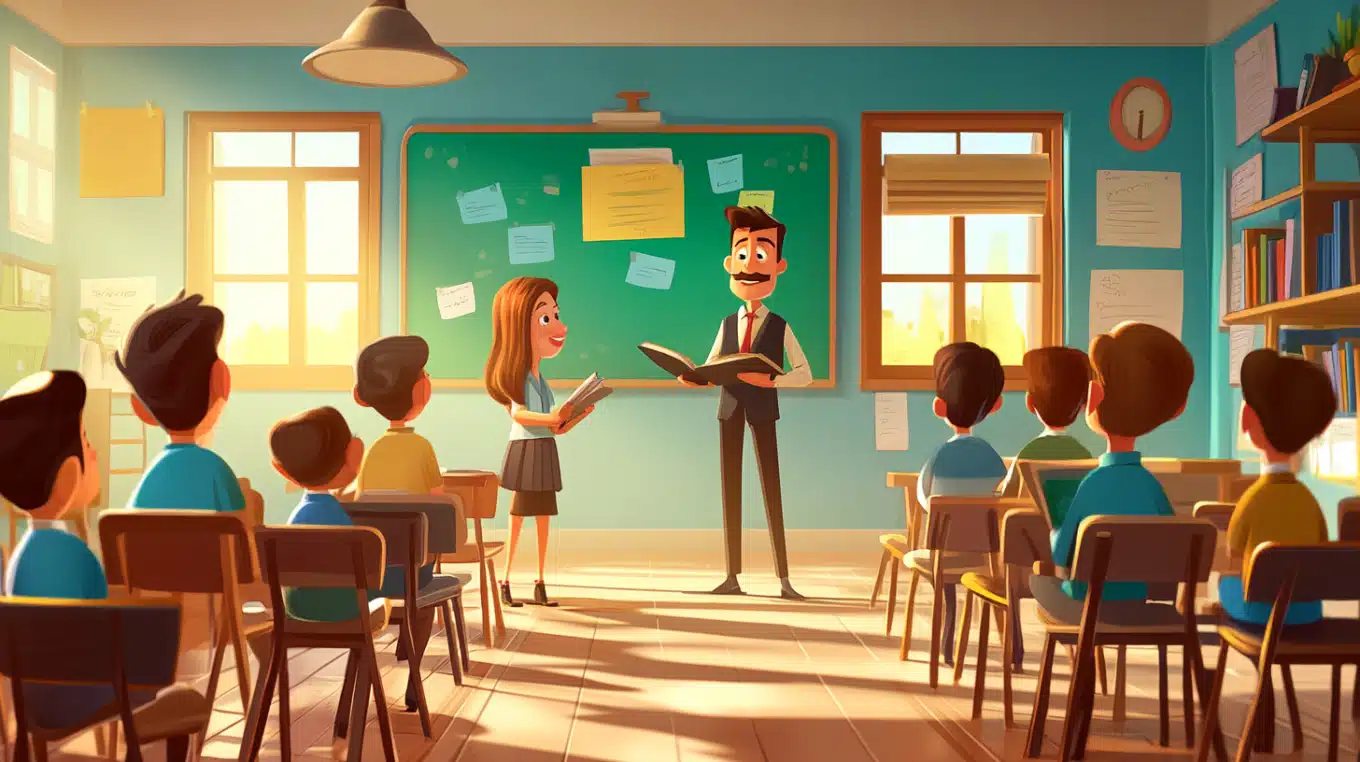Learning grammar can be tough. Many students struggle with comparatives and superlatives, often finding them boring or hard to grasp.
But it doesn’t have to be this way. There are fun and engaging ways to master these important language skills.
Comparative and superlative games offer an exciting solution. These activities turn learning into play, helping students easily understand and use these grammar forms.
This blog post will show you several enjoyable methods to teach and learn comparatives and superlatives. We’ll explore classroom games, quizzes, and interactive exercises that make grammar practice a blast.
By the end, you’ll have a toolkit of engaging activities to help learners of all ages become grammar pros.
Foundation Level: Understanding and Simple Games
1. Classroom Olympics

Classroom Olympics is a fun way to start learning about comparative and superlative adjectives. This game uses simple activities to help students understand these grammar forms.
For example, you can have students jump or run. Then, the class can make sentences like “Sarah is faster than John” or “James is the tallest in the class.”
This hands-on approach helps students grasp the concept quickly and easily.
2. Chain Game

The Chain Game is another great tool for learning comparatives and superlatives. In this game, students create sentences by comparing different nouns.
For instance, they might say, “Dogs are bigger than cats. Cats are faster than mice.” This game helps students practice using these forms in full sentences and makes them think about how different things compare.
3. Flashcard Game

Flashcards are useful for teaching many things, including comparatives and superlatives. In this game, students use noun flashcards to make sentences.
For example, if they see an elephant card, they might say, “An elephant is bigger than a fly.” This game works well as a team activity.
It encourages students to work together and think quickly. The team-based format adds a fun, competitive element to learning.
Mid-Level: Interactive Practice
1. Comparative and Superlative Quizzes

Quizzes are a great way to make learning fun. They test what students know and help them use comparative and superlative adjectives.
For example, you might ask, “What’s the largest continent?” Students then answer in a full sentence: “Asia is the largest continent.”
This method helps students practice using these forms in real contexts and teaches them about the world around them.
2. Family Description Activity

The Family Description Activity brings learning close to home. Students use photos or drawings of their families to practice comparatives and superlatives.
They might say things like, “My brother is taller than my sister” or “My father is the tallest in the family.”
This activity makes the grammar personal. It helps students see how to use these forms to discuss their lives.
3. Pictionary and TPR Games

Pictionary and Total Physical Response (TPR) games add a visual and physical element to learning. In these games, students draw or act out words like “angry,” “angrier,” and “angriest.”
Their classmates then try to guess what they’re showing. This approach helps students connect the grammar to actions and images. It’s especially good for students who learn best by seeing or doing.
Advanced Level: Communication and Creativity
1. Yuppies Game

The Yuppies Game sparks imagination and friendly competition. Students make bold claims using comparatives and superlatives.
For instance, someone might say, “My grandmother is the kindest. She bakes cookies every week.” Then, others try to top that claim.
This game pushes students to think creatively and use these grammar forms in fun, engaging ways.
2. Sentence Completion and Guessing Games

These games challenge students to finish sentences and guess their classmates’ answers. You might give prompts like, “The most delicious food I’ve ever eaten is…” or “This car is faster than…” Students complete these sentences and try to guess what others wrote.
This activity hones both speaking and listening skills while using comparatives and superlatives.
3. Class Comparisons and Trivia Quizzes

Class Comparisons turn grammar practice into a lively contest. Students earn points by making true statements about their classmates.
For example, “Sophie is taller than Max” or “Max is the funniest.” This game helps students apply grammar to real-life situations. Trivia quizzes add another layer of fun.
Questions like “Which is longer, a giraffe’s neck or an elephant’s trunk?” simultaneously test knowledge and grammar skills.
Creativity and Production Stage
1. Comparative and Superlative Designs

This activity sparks creativity and uses grammar skills. Students create their objects, like robots or cars, and then describe their creations using comparatives and superlatives.
A student might say, “This robot is faster than other robots. It is the most smart ever made.” This exercise lets students use grammar fun and imaginatively, showing how these forms can help explain new ideas.
2. Strangers on the Train Roleplay

The Strangers on the Train game mixes acting with grammar practice. Each student gets a secret comparative or superlative word for the talk.
The goal is to slip this word into chat without others noticing. For example, a student with “funnier” might say, “My day was funnier than usual.”
This game sharpens listening skills and helps students use these forms in normal talk. It’s fun to practice grammar while pretending to be someone else.
Summing It Up!
Comparative and superlative games offer a fun way to master tricky grammar. These activities make learning an adventure, helping students grasp and use these forms easily.
From Classroom Olympics to creative design challenges, there’s something for every skill level. These games do more than teach grammar – they boost confidence, spark creativity, and make English more enjoyable.
These methods allow teachers to transform grammar lessons from dull to exciting. Students will use comparatives and superlatives naturally, without even thinking about it.
So, why stick to boring textbook exercises? Try these engaging activities in your next lesson. You’ll see how quickly students improve and how much fun they have while learning.
Remember, the best way to learn is often the most enjoyable way.




